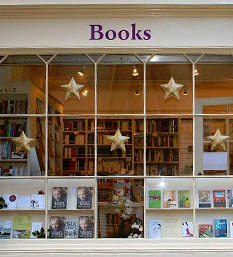 While the UK continues its aggressive pursuit of those who run or even facilitate access to sites offering copyright infringing material, its efforts to deal with consumers of pirated content have been painfully drawn out.
While the UK continues its aggressive pursuit of those who run or even facilitate access to sites offering copyright infringing material, its efforts to deal with consumers of pirated content have been painfully drawn out.
With the provisions of the Digital Economy Act now somewhat of a distant memory, using force to deal with Internet subscribers has been largely overtaken by plans to re-educate the masses.
To that end the government-funded, rightsholder-supported Creative Content UK (CCUK) initiative has been trying to gather momentum since its somewhat subdued debut in December last year. Though various PR campaigns the project hopes to change the public’s attitude towards Internet piracy.
Currently CCUK is running “Get It Right from a Genuine Site”, a campaign that hopes to deter people from using sites like The Pirate Bay in favor of licensed services that ensure that creators are properly paid.
The campaign has been largely inoffensive and quite colorful thus far but has struggled to achieve mainstream exposure. However, the latest video in the “Get It Right” series hopes to change that with a properly “grown up” attempt at reaching out to would-be pirates.
Featuring bookseller Nic Bottomley and his real-life book store ‘Mr B’s Emporium Of Reading Delights’, this Bookseller Association-supported video is a somewhat refreshing and calming anti-piracy short that’s a million miles away from “You Wouldn’t Download“.
Located in the beautiful city of Bath, the Emporium is a classic UK book shop and the video begins with its owner’s memories of repeatedly reading the Roald Dahl classic Fantastic Mr Fox. It’s warming stuff and a welcome change from the aggressive threats featured in other campaigns.

From the moment it begins it becomes clear that the aim of this short is to encourage the viewer to empathize with Bottomley, who together with his wife has built up a really decent book business over the past 12 years. And it works.
Bottomley’s tone is superb and doesn’t sound ‘preachy’ at all, and it’s genuinely nice to hear a little about what it’s like to run his shop and help out customers. But of course, that’s only possible if the public spends money with him and by extension, those writing the books.
“You know that when you buy a book from a high street book shop, or a book or an ebook from a legitimate website, that the creator of that content, in other words the writer of the book or ebook, has been properly rewarded for their work,” Bottomley tells the viewer.

But while it’s easy for those who grew up with mountains of real books to have the utmost respect for what Bottomley has achieved, it’s questionable whether his story will resonate so clearly with the ‘downloading generation’. Real books and real book shops are indeed beautiful, but increasingly digital downloads are taking over, with products like Kindle Unlimited (the Netflix of books) a more attractive proposition for those on the go.
Still, it’s hoped that booksellers of all kinds will get behind the initiative and spread the word that supporting writers (and sellers) is the right thing to do.
“We need to help the creative community to invest in creating more of content, and the development of new artists and writers and ideas as a result,” says Bookseller Association CEO Tim Godfray.
Finally, it will be interesting to see to what extent publishers, writers and book sellers will be supported when UK Internet service providers finally begin to send out warnings to alleged pirates in the months (years?) to come. The scheme has already been hugely delayed and thus far there has only been discussion of music, movie and TV show downloaders being targeted.
Also problematic is the manner in which ebooks are shared online. While torrents are the preferred method for larger files, books are much more likely to be distributed via hosting sites and forums. This kind of sharing cannot be tracked, so the education component is even more critical for the book sector.





